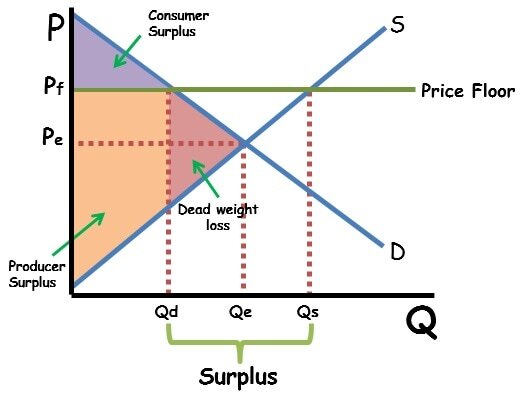This has been studied over and over and always with the same results. The economy isn’t hampered, jobs aren’t replaced by machines and overseas workers, the cost of goods doesn’t go up, and factories don’t close. The main impact is that quality of life increases, health spending increases (now that people can afford to take their kids to the doctor), and corporate profits decrease very slightly.
Especially in this economy of runaway corporate greed, we need a meaningful increase in wages
Oh jobs are replaced by machines, it just has almost nothing to do with minimum wage. Machines cost pennies on the dollar for production value compared to humans. The human wage is pretty meaningless at that point, even forced labor is less profitable.
I think part of the issue is how business accounting practices work. When you buy a machine, you can call it a capital investment and count its value as an asset. When you hire a person and cultivate them for years, from an accounting perspective their salary is strictly a liability / expense. Even though that person is an asset in every other way, our standard accounting practices don’t reflect that.
Accounting practices reflect exactly what is relevant to profits within the desired time frame. There are no laws that make employee seniority valuable within the business cycle, so it has no value to account for.
The investment that business sees is like you spending a thousand dollars a year for a century in order to make a million dollars. Sure it’s a 10 to 1 return on investment, but you’ll be dead, so is it really worth it?
Especially in this economy of runaway corporate greed, we need a meaningful
increase in wagesrevolution to eliminate those corporations and the systemic rewarding of greed.The fact that they could increase wages and still make money while improving society but don’t, is why they don’t deserve any more benefit of the doubt, or room to continue hoarding wealth and power as they are, because a system that craves constant growth at any cost will never stop on its own (nor provide paths for reform).
All of those things do happen, they just happen irregardless of minimum wage being raised. Like, the machines are coming for all jobs eventually, that’s not a reason to not raise the wage for living workers.
IrregardlessregardlessLike it or not, it’s in the dictionary. =p
It’s also in Mean Girls 🤭
Remember that a definition is not an endorsement of a word’s use.
Increasing minimum wage puts more money in the economy which people will spend which puts more money in businesses so they can pay their people more putting more money in the economy.
The only reason the wealthy don’t like this is because their money passes through the hands of the unclean masses instead of going directly into their offshore tax haven accounts.
Yep.
Give a rich man a dollar and all you’ve done societally is remove a dollar from the economy. If you instead make him give that money to his employees things change, but cause poor people actually need money and will spend it.
You give a poor person that dollar through increased minimum wage and they spend it at a business. That business now makes more money, which is passed on to its employees through the increased minimum wage, and they spend that dollar again.
And again.
And again.
That dollar you took from the rich and gave to the poor drove a lot more than a dollar’s economic activity.
OH - and it’s also taxed every time it changes hands, so it also brings in more than its initial value in tax revenue.
The dollars are soiled by passing through the hands of the poor, though.
Don’t worry, the rich are here to laundry the money until it is clean again.
Where I live, Washington, the minimum wage is $16.28 p/hour. Across the border in Idaho, the federal minimum applies — $7.25.
Businesses on the higher-wage side of the border are doing fine, and Spokaners do not drive across the border into Coeur d’Alene for cheaper groceries or a half-price Big Mac.
California recently increased minimum wage, and despite this, people still live there.
More than that, California (last I checked) had the fifth largest economy in the world when comparing to entire countries.
I think they’ll do just fine.
Economic models keep most numbers fixed to simplify their math. They call it ceteris paribus.
So when economists claim that increasing wages will reduce the amount of jobs, they came to that conclusion by keeping corporate profits fixed while doing their math. So any business expense is paid for by reducing workers or wages.
In the real world corporate profits are not fixed and have grown faster than wages for decades.
Keep that in mind if an economist ever tries to claim increasing wages will reduce the quantity of jobs.
Economists are also very aware of what they choose to keep fixed and what they choose to allow as a variable. It’s a science that’s incredibly easy to corrupt the results in. Which is why people really need to pay attention to who it’s giving the results.
Right. The problem is, CEOs maintain that as “responsibility to their shareholders” to ensure their Q4 earnings reports prove continuous growth. So prices will inevitably increase, or overhead will be reduced to maintain those margins.
Profits can go down slightly as long as it’s expected. The stock market is weird and the thing nobody likes is unexpected falling numbers. Stocks can maintain or even increase in value if the report matches the predictions and expectations. Even if that prediction is a slight lowering in profits.
Because people make money on businesses doing poorly as well by short selling
Well that’s a different case. That’s when the stock price goes down. Not necessarily when profits go down.
The price of progress is oppression, and the outcome of progress is that those who oppress get to enrich their own descendants so they can continue to oppress.
Nah, fuck all that.
Have we not known this for years?
I’ve always used it as an example of when oversimplified chalkboard economics don’t match experimental reality.
Are the “oversimplified chalkboard economics” basically the businesses winging about having to pay people more?
What follows is incorrect
It’s a price floor, which creates a deadweight loss.

Since we’re also consumers, it’s a net loss.
Tbf, economics has to presume inequality to be non existent. If they dont, inequality is the overriding factor that makes all the other forces at play pale in comparison. So, they remove inequality.
Again, tbf, in a world with no inequality, where only the very best and brightest rise to the top and not just a endless stream of nepo babies, with whole institutions in place to ensure a lack of social mobility, a national minimum wage would be a bad idea. Just like tax breaks for the rich would fix any problem you had, in that fake - made up world that could never exist.
But, as you allude to, in the real world, things are very different.
Should it not just be integrated in to the supply cost?
Yes, but how exactly that distorts the market is counterintuitive.
How so?
Intuitive chalkboard economics lead to the net loss conclusion above. Experimental reality as described in the study says otherwise.
Card & Kreuger has been held up by right wingers for ages as evidence to the contrary but it’s a very bad study
Our corporation funded a study that says this study is wrong. /s
Corporations were bragging about record profits not that long ago, and then basically admitted to price gouging. Folks are extremely underpaid in most areas. Not shocked at all.
The only thing increasing minimum wage must do is take money out of the wealthiest pockets.
And that’s why wages stay stagnant.
Every other argument is a red herring.
If its a real business and not a grift or privtization of gains/socialization of losses, they will pay closer to the right wage to have the right people fill the chair
Raise minimum wage? No, tax cuts for only certain low wage jobs instead. What are you gonna do, vote for the other parties we’ve forced off the ballots?
The root cause isn’t minimum wage. While that can be important it does affect a lot of small business. With that said the root cause is corporations using profits to line their pockets instead of helping the economy by paying their employees.
We need to stop skirting around the issue that is corporate America. we need to tax the fuck out of corporate profits BEFORE they hide it all in investments or stock buybacks.
Joke’s on us, fast food jobs were replaced by touch screens anyway.
Who even gets paid minimum wage? My kids started at fast food for several dollars above minimum, to where I’m not even sure what the point is.
I got paid minimum wage when I was a supermarket cashier.
Makes sense. Like fast food, it’s a job that doesn’t require experience or any particular skill set.
No it does, I still remember all the produce codes and find myself tetrising my own grocery bags. A good cashier is faster, cleaner, and saves you money.
Basically every “tipped” job gets paid minimum wage (or below).
Yeah that’s true, but with tips they actually do pretty well so it’s tough to count that in discussions about minimum wage.
People are bad at saving money, increase minimum wage and they’ll just spend the extra, increasing companies revenues, allowing them to pay the higher minimum wage. In the end the employee is able to afford more stuff, the company doesn’t feel the impact, everyone is happy!
Even the most skilled money saver in the world, when their income is barely above their necessary life expenses, will fail to save much. Savings is a luxury only the rich can afford much of.
But you’re right, putting money into the hands of people living paycheck to paycheck, or barely able to save is great for the economy as well as those people personally. Even if they save 10% and spend 90%, it’s tremendously more beneficial than that money going to a wealthy multimillionaire who won’t even notice saving it. For everyone except the multimillionaire, who really isn’t negatively impacted.
Even when putting more money in the hands of people who make way more than what they need to afford the basics will result, in most cases, in them spending it instead of saving. You see it very clearly in regions that rely on industries like mine, people’s personal finances boom and burn… They have jobs making 150k/year and buy a big house, a truck, a quad, a snowmobile, a sports cars, motorcycles, name it, the second things slow down they can’t afford to make payments on any of that because they never saved a cent.
Or the working class can’t afford everything it needs. So a raise goes towards buying more necessities.
It’s kind of hard to save when every dollar is accounted for in food, shelter, and utilities.
And these necessities are very often procured from stores that pay their employees minimum wage, so it all comes back to what I was saying… But even for people who get paid way more than minimum wage, a significant proportion is living paycheque to paycheque or close to it.
People are coming at you because it sounded like you were saying the poor were poor because of bad financial skills.
well the best way to make money in America seems to be to have money. The more money you already have now the more you can use it to make more money.
Thats probably why poor people stay poor. Not enough to snowball, its all gone ever day.
If you look at my message I’m clearly painting a broad picture, “people are bad at saving money”, I never said it only applied to people with lower income. I’ve known of engineers making 300k/year panicking because 200$ were missing from their paycheque and they wouldn’t be able to make their payments… They just own a bigger house and a Porsche instead of renting an apartment and driving a Civic, in the end they have 0$ set aside and if their income goes up they just find more stuff to purchase…
Okay.








